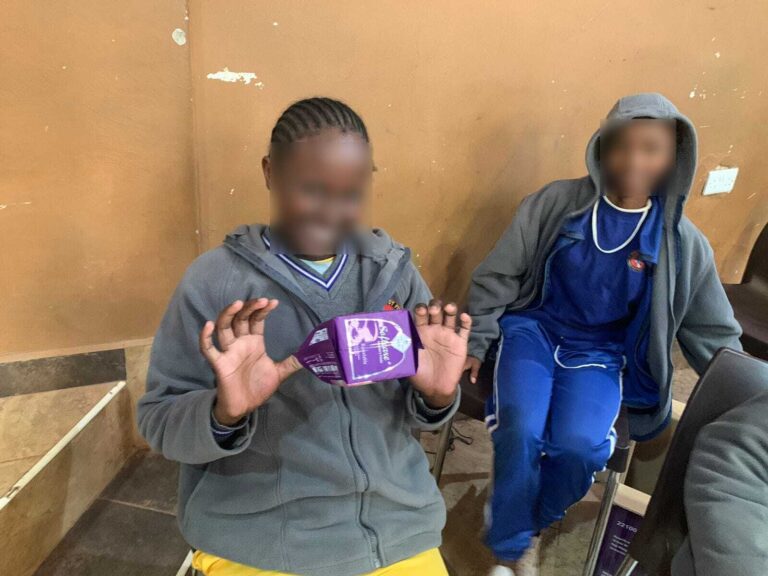Who We Are
- Home
- / Who We Are


About A PACK A MONTH (APAM)
A PACK A MONTH (APAM) is a community-rooted social enterprise in Kajiado County; Kenya that empowers adolescent girls and young women (AGYW) by addressing the critical, and often overlooked, issue of menstrual health and dignity.
Founded to confront the realities of period poverty, APAM works to ensure that no girl misses school, risks her health, or is forced into transactional sex simply because she cannot access menstrual hygiene products. We envision a world where menstruation is not a source of shame or limitation—but a natural part of life that is met with care, dignity, and support.
Our impact is driven by a threefold approach:
Access: We provide menstrual health products to girls in under-resourced schools and communities.
Education : Through school-based ; community based workshops and outreach programs, we deliver accurate, empowering education on menstrual hygiene and sexual and reproductive health rights (SRHR).
Empowerment : Our Beading for Pads initiative enables local women and girls to earn income through beadwork—funding the production and distribution of sanitary kits while preserving cultural artistry.
Recognizing the layered vulnerabilities many girls face, APAM also runs a Free Babies Daycare for Adolescent Mothers—many of whom are survivors of defilement. This center provides a safe, nurturing space for their children, allowing young mothers to return to school, pursue opportunities, and begin healing while knowing their babies are cared for.
At APAM, we are not just responding to a need—we are building a movement. One that breaks silence, restores dignity, and reclaims futures for girls and young women across Kenya.
Our Mission
Our Mission is to create an informed society that promotes, protects, and amplifies Human Rights and Sexual Reproductive Health Rights (SRHR) for Adolescent Girls and Young Women (AGYW), with a focus on menstrual hygiene. We are committed to:
- Providing and distributing menstrual health products.
- Facilitating capacity-building programs and community dialogues.
- Advocating for the rights and dignity of AGYW.
- Using beading as an empowerment tool to help crafters exchange their beadwork for sanitary pads.
Through these efforts, we seek to reduce stigma around menstruation, promote menstrual health, and ensure AGYW are empowered to make informed decisions about their bodies and their futures.
Our Vision
Our vision is a world where no adolescent girl or young woman is forced into transactional sex to manage her period. We strive for communities free from Sexual and Gender-Based Violence (SGBV), where the voices of AGYW are heard, their rights protected, and their dignity upheld.
By ensuring sustainable access to menstrual health solutions and creating space for inclusive community dialogue, we aim to build a society that values, empowers, and protects its most vulnerable members—starting with girls and young women.
Our Future Plans
Land
Purchase of land so as to have a space for the girls to engage on without interruptions’ from
the public.Help Us Now
Rescue Centre
To have a rescue center for the GBV, FGM and early pregnancy victims
Sustainability
To have an income generating project so that the program is self- sustaining.
Transport
To have our own means of transport to enable rescues and reach the girls in the interior easily.
Resource Centre
For the girls’ center to have a resource center accessed by girls who may not be rescues for life-skill impartation.
Current Challenges
Financial Constraints
The funding of the project is dependent on friends and well-wishers who contribute voluntarily. At times it is difficult to meet the girls’ needs. The main costs include:
- Purchase of sanitary pads and painkillers.
- Logistics and transportation costs.
- Volunteers stipend & venue hiring.
- Miscellaneous costs (sometimes the girls have immediate needs like food, school fee, school uniforms or stationery). We currently have to purchase masks and sanitizers for the girls program.
Arising Needs
From the girls’ like the need of undergarments(panties) to make the use of the pads easier for them.
Lack of Life-Skills
Like sewing that would enable them repair their clothes and torn undergarments.
